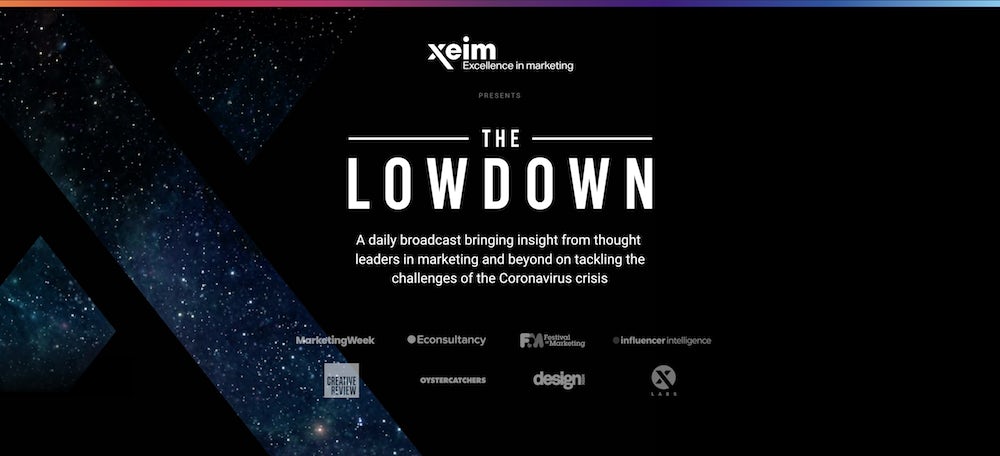With large numbers of their customers under lockdowns and/or facing uncertain financial circumstances, engaging effectively with consumers demands new approaches.
To maintain and build relationships with consumers while many are sidelined, lots of brands are upping their content marketing investments.
Here are four examples of brands using the Covid-19 crisis as an opportunity to bolster their content marketing.
DoubleTree
DoubleTree, an American hotel chain owned by Hilton, is famous for the chocolate chip cookies it serves guests at check-in. The recipe had been a corporate secret, with lovers of the cookies forced to try to replicate them using unofficial copycat recipes.
But extraordinary times call for extraordinary measures and with its regular guests stuck at home, DoubleTree decided to reveal its chocolate chip cookie recipe to the world.
“I know this is an anxious time for everyone,” DoubleTree SVP and global head Shawn McAteer stated. “A warm chocolate chip cookie can’t solve everything, but it can bring a moment of comfort and happiness.”
A video containing the recipe has been viewed nearly 250,000 times, fans have been posting the cookies they baked using the recipe on social media, and numerous online and offline media outlets have covered the news.
The warm response is an especially good outcome for a hotel chain that has seen the environment for its business turn cold, as it allows DoubleTree to maintain a connection to consumers at a time when they’re not thinking about hotels.
Nike
Global shoe and athletic apparel powerhouse Nike has temporarily closed its stores in key markets, including the US, Western Europe, Canada and Australia. But the brand has been pumping up engagement with consumers using content marketing.
Last month, it made its subscription Nike Training Club app, which offers streaming workouts, training programs and expert tips, free. It also began pushing out more content to its Nike and Nike Running Club apps, Nike.com website, TRAINED podcast and social channels to serve the millions upon millions of consumers who are under lockdown and trying to maintain their fitness indoors.
To promote its content offerings, Nike developed a marketing campaign, Play for the World, that utilizes its roster of athlete endorsers and shows how they’re keeping in top form during the pandemic.
NuFace
Beauty brand NuFace, which makes a facial toning device, has seen its sales surge as consumers stuck at home seek at-home treatments for skincare. To adapt to the coronavirus environment, the company has replaced the in-person house calls it employed before with virtual house calls hosted on Zoom and Facetime. These calls target spa partners and influencers that work with the brand, and consist of tutorials delivered by NuFace’s founder and CEO Tara Peterson.
The company is also doubling down on the content it creates for Instagram. Views on its Instagram Stories are up 30%, and likes and comments on its Instagram posts are up 20%.
In an effort to create content that resonates with viewers, NuFace surveys them on what type of content they would like to see and is responding “in hours” with content that aims to please them.
Importantly, NuFace isn’t trying to aggressively push product in its content. Instead, according to Peterson, “the most important thing for us right now is staying connected to our community and finding ways to uplift them.”
Content Strategy Best Practice Guide
Unity Technologies
B2C brands aren’t the only ones making the best of the crisis. Unity Technologies, which makes a popular gaming engine, has made three months of premium content from its Unity Learn available to game developers.
Unity Learn, as the name suggests, offers instructional content to developers for building games using the company’s technology. This content includes tutorials, full courses and sample projects.
As part of its Covid-19 content marketing effort, Unity also launched Create with Code Live, a virtual class offering, that is also free for all interested.
In announcing these, the company released a statement aimed at game developers of all levels, which explained, “At this difficult time, we remain committed to making it easier and more intuitive for you to achieve your aspirations. We believe the world is a better place with more creators in it. Today we want to go beyond the normal…”
The key takeaway: be useful
No matter the industry or nature of a business, the case studies above all have one thing in common: the brands behind them are aiming to make themselves useful — not just entertaining — to consumers at a time when many of them are stuck at home.
Obviously, some brands will have a greater opportunity to do this than others but as the DoubleTree case study highlights, even brands hardest hit by the Covid-19 pandemic can find brand assets that lend themselves to compelling content marketing campaigns.


Comments